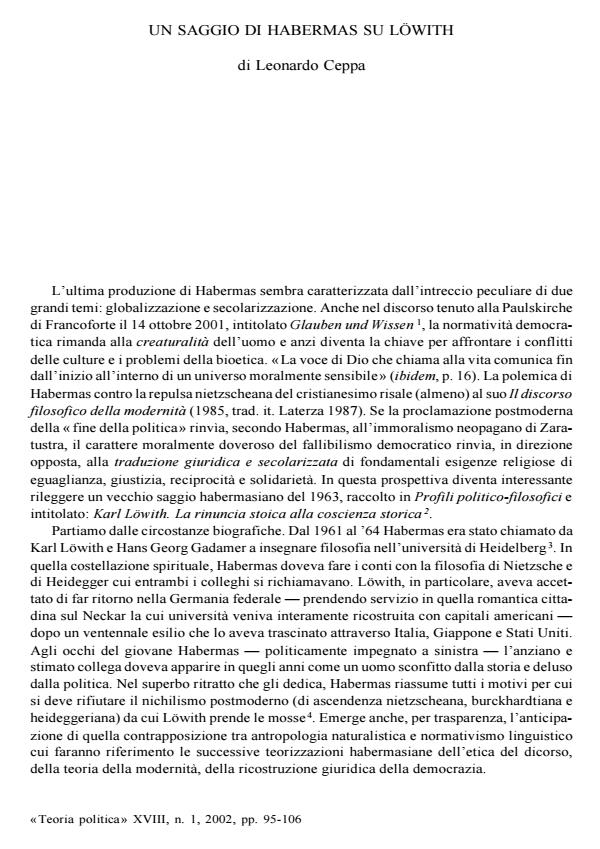Un saggio di Habermas su Lowith
Journal title TEORIA POLITICA
Author/s Leonardo Ceppa
Publishing Year 2002 Issue 2002/1
Language Italian Pages 12 P. File size 44 KB
DOI
DOI is like a bar code for intellectual property: to have more infomation
click here
Below, you can see the article first page
If you want to buy this article in PDF format, you can do it, following the instructions to buy download credits

FrancoAngeli is member of Publishers International Linking Association, Inc (PILA), a not-for-profit association which run the CrossRef service enabling links to and from online scholarly content.
In the 1963 essay on Löwith, Habermas shows a genealogic inclination which will have big developments in his thought. That is the tendency to draw the moral universalism which is typical of modernity (equal respect for everybody and reciprocal solidarity) back to the Jewish idea of justice and to the Christian idea of love. The normative logos of modernity finds in the biblical idea of creation and salvation its"only possible source". It becomes therefore interesting to see in his dispute with Löwith, the first germs of a double theoretical program. On one side, political philosophy traces more and more decisively to their religious origins the moral intuitions of modernity (universalism and democratic solidarity). On the other side, though, it takes on itself the postreligious and postmetaphysical task to transfer world religions’ content in terms of truth in a more abstract language (that is neutral, transcultural, and implementable).
Leonardo Ceppa, Un saggio di Habermas su Lowith in "TEORIA POLITICA" 1/2002, pp , DOI: